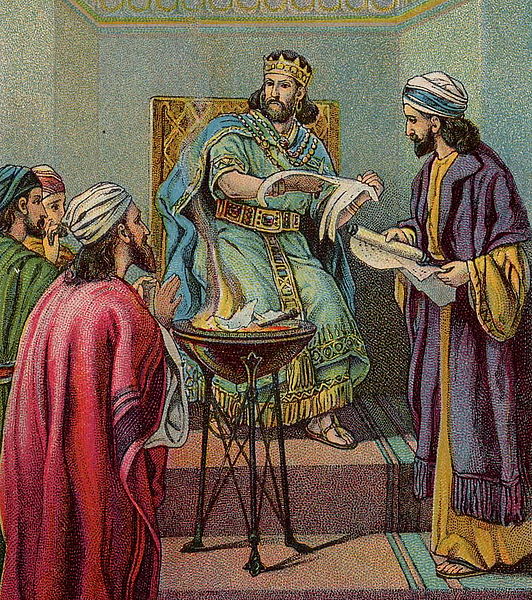Book burning is the deliberate destruction by fire of books or other written materials, usually carried out in a public context. The burning of books represents an element of censorship and usually proceeds from a cultural, religious, or political opposition to the materials in question. Book burning can be an act of contempt for the book's contents or author, intended to draw wider public attention to this opposition, or conceal the information contained in the text from being made public, such as diaries or ledgers. Burning and other methods of destruction are together known as biblioclasm or libricide.
Contemporary book burning
Nazi youth brigades burning "un-German" works by Jewish and left-wing authors at the library of the Institut für Sexualwissenschaft, 1933
Plaque at Bebelplaz commemorating Nazi book burning, 10 May 1933
King Jehoiakim burns Jeremiah's scroll.
Burning of books and burying of scholars
The burning of books and burying of scholars was the purported burning of texts in 213 BCE and live burial of 460 Confucian scholars in 212 BCE ordered by Chinese emperor Qin Shi Huang. The events were alleged to have destroyed philosophical treatises of the Hundred Schools of Thought, with the goal of strengthening the official Qin governing philosophy of Legalism.
Killing the Scholars and Burning the Books, anonymous 18th century Chinese painted album leaf; Bibliothèque nationale de France, Paris





